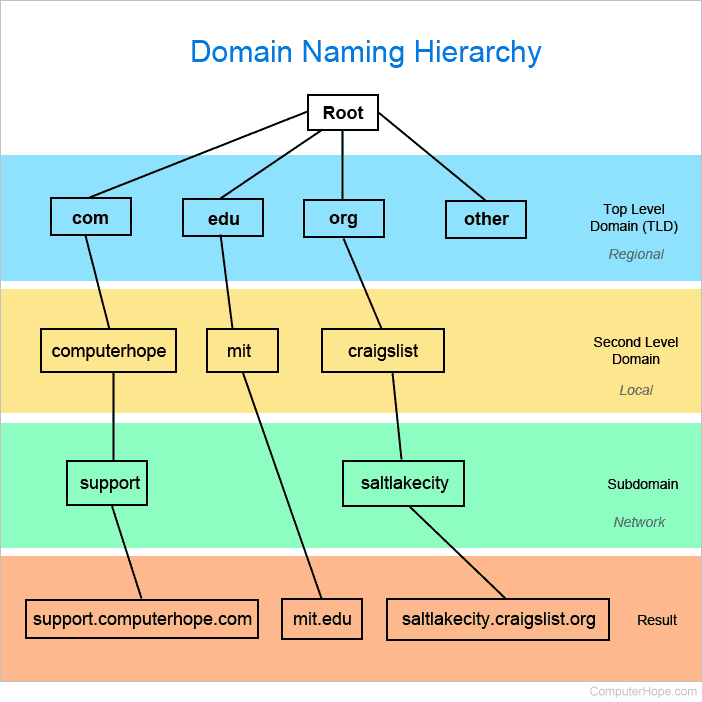Understanding Domain Names in Computer Networks
Domain names are a crucial part of the internet infrastructure and play a significant role in networking. These names serve as human-readable addresses for websites and other resources on the internet. In this article, we will explore the meaning of domain names in computer networks, their importance, and how they function within the larger network ecosystem.
What is a Domain Name?
A domain name is a unique, user-friendly identifier that represents an internet resource, such as a website or an email server. It is composed of two main parts: the top-level domain (TLD) and the second-level domain. For example, in the domain name “example.com,” “com” is the TLD, and “example” is the second-level domain.
Domain names are used to replace the numerical IP addresses that computers use to communicate with each other on the internet. While IP addresses are essential for routing data between devices, domain names make it easier for humans to remember and access websites and services.
How Do Domain Names Work?
When you type a domain name into your web browser, such as “google.com,” your computer contacts a domain name system (DNS) server to translate the domain name into an IP address. The DNS server then directs your request to the appropriate web server, which hosts the website associated with that domain name.
Domain names rely on a hierarchical system that starts with the root domain, represented by a dot (.). Beneath the root domain are the top-level domains (TLDs), such as .com, .org, .net, and country-code TLDs like .us or .uk. Second-level domains, such as “google” in “google.com,” can be registered by individuals, organizations, or businesses.
The Importance of Choosing the Right Domain Name
When selecting a domain name for your website, it is essential to consider several factors, including brand recognition, search engine optimization (SEO), and user experience. A memorable and relevant domain name can help build brand awareness and make it easier for users to find and remember your website.
Domain names also play a critical role in SEO, as search engines consider keywords in domain names when ranking websites. Choosing a domain name that reflects your business or target keywords can improve your website’s visibility and search engine rankings.
Conclusion
Domain names are the gateway to the internet and serve as the foundation of the modern web. Understanding how domain names work and their significance in computer networks is essential for anyone looking to establish an online presence. By choosing the right domain name and leveraging its potential, individuals and businesses can create a strong online identity and reach a broader audience.
